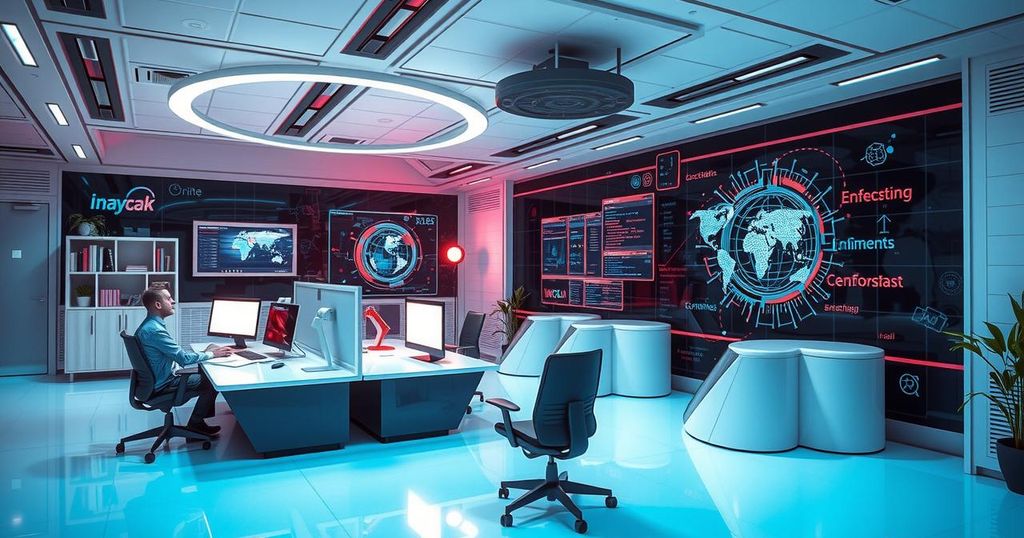– 70% of job skills are expected to change by 2030; leaders anticipate AI culture shift. – AI’s adoption is crucial for business growth, with 51% of SMEs reporting increased revenue. – Effective leadership and employee training are essential for successful transition to AI-driven operations. – 2025 is projected as a pivotal year for integrating functional AI in workplaces.
Key Highlights
– By 2030, 70% of job skills will evolve due to AI.
– 88% of C-suite executives emphasize the importance of accelerating AI adoption in 2025.
– 51% of small and medium businesses report a revenue increase of at least 10% post-Generative AI implementation.
– Leaders must actively manage workplace transitions to optimize AI functionalities.
The AI-Driven Transformation of Work
The introduction of artificial intelligence (AI) is significantly reshaping the workplace, enhancing productivity and innovation. By 2030, it is anticipated that 70% of the skills required in most jobs will fundamentally change. This trend underscores the urgency for executives to overhaul how work is executed within their teams.
The Necessity for Disruption
Executives acknowledge that a culture shift is imminent, with 80% of C-suite leaders believing that AI will enhance team innovation. Such perceptions are prompting organizations to prepare for unparalleled alterations. LinkedIn’s recent Work Change Report indicates that over 10% of current job titles are unprecedented since 2000, representing a fundamental transformation of roles within the workforce.
The Role of Leadership in Change Management
To navigate this evolving landscape, business leaders must evolve into technology executives, mastering AI’s potential applications. Such leaders are tasked with guiding their teams through an array of shifts, encouraging gradual AI adoption by showcasing its utility in routine tasks. An emphasis on small victories coupled with effective communication aids this transition.
Upskilling for the AI Era
The shift in job nature necessitates continuous skill acquisition. Organizations should prioritize employee training on AI tools, with 37% of global C-suite executives committed to investing in learning and development this year. Providing employees with the knowledge to effectively utilize AI products will facilitate faster adoption and maximize benefits.
Embracing Functional Change
Looking ahead to 2025, companies are expected to prepare for sweeping changes in operational functionality driven by AI. Leaders must identify opportunities to integrate AI into existing workflows, motivating employees to enhance day-to-day tasks. This strategic incorporation of AI can lead to deeper customer relationships and the development of innovative products and services.
A Case Study: AMS
AMS exemplifies practical AI integration by enhancing candidate engagement throughout the recruiting process. As per Janet Mertens, Managing Director of Data, Insight and Analytics at AMS, aforementioned advancements allow for continuous engagement, benefitting candidates regardless of time zone constraints.
Conclusion
As organizations embrace artificial intelligence, effective leadership is paramount. Executives are required to proactively manage this transformative transition, align corporate goals with AI utilization, and foster a supportive and innovative culture. Ultimately, the successful integration of AI presents immense opportunities for both business growth and employee satisfaction.
In summary, the rapid advancement of AI is poised to transform how work is conducted in organizations globally. Business leaders must embrace this technological change by actively guiding their teams and facilitating the necessary upskilling. By doing so, they can unlock new avenues for innovation and ensure that their organizations remain competitive in the evolving job landscape.
Original Source: www.weforum.org

Leave a Reply